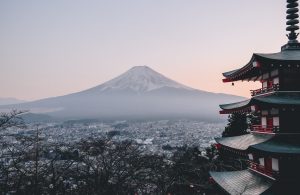 Han-shakai-teki seryoku has to be one of the most unwieldy and obscure Japanese legal terms of all. When foreigners see it, it is typically in the context of a contract with a Japanese company containing a clause such as the following (from a SEC filing on LawInsider):
Han-shakai-teki seryoku has to be one of the most unwieldy and obscure Japanese legal terms of all. When foreigners see it, it is typically in the context of a contract with a Japanese company containing a clause such as the following (from a SEC filing on LawInsider):
Anti-Social Forces. None of Seller or the Company or any of their representatives constitutes, or is engaged in anti-social activities directly or through third parties, with persons that are:
(i) bouryokudan organized crime groups (“bouryokudan” as defined under Article 2(ii) of the Act on Prevention of Unjust Acts by Organized Crime Group Members (Act No. 77 of 1991, including subsequent revisions));
(ii) members of bouryokudan (“bouryokudan in” as defined under Article 2(vi) of the same act) or former bouryokudan members with less than five (5) years having passed since separation;
(iii) associate members of bouryokudan;
(iv) companies affiliated with bouryokudan;
(v) soukaiya racketeer groups;
(vi) groups conducting criminal activities under the pretext of social campaigns;
(vii) crime groups specialized in intellectual crimes;
(viii) other entities equivalent to items (i) through (vii);
(ix) companies whose management is influenced by a person to which any of items (i) through (viii) apply (“Bouryokudan Members”);
(x) companies whose management substantially involves Bouryokudan Members;
(xi) persons who wrongfully engage Bouryokudan Members for the purpose of gaining unjust profit for themselves, their company or a third party or for the purpose of harming a third party;
(xii) persons who provide funds or assistance to or are otherwise involved with Bouryokudan Members; and
(xiii) directors or other persons substantially involved in management who have socially unacceptable relationships with Bouryokudan Members.
What a paragraph! These individuals and groups, as well as their various associates, are typically collectively defined as “anti-social forces.”
- Bouryokudan (暴力団) is a common Japanese term for what Westerners would refer to as the yakuza – Japanese organized crime gangs. Anti-social forces clauses typically capture not only the gangs and their members, but also “associates” who receive funding, weapons or other benefits from the groups, as well as affiliated businesses.
- Soukaiya (総会屋) are racketeers who target companies for extortion. Traditionally, they did so by purchasing small shareholdings in companies, then extorted money by threatening to disturb annual general meetings; thus the name, which literally means “general meeting house” (“house” in the sense of a business).
- “Groups conducting criminal activities under the pretext of social campaigns” is an unwieldy translation of the Japanese term shakai undo hyobo goro (社会運動標榜ゴロ). These are groups that conduct extortion under the guise of a non-profit or political organization.
- “Crime groups specialized in intellectual crimes” is an unwieldy translation of the Japanese term tokushu chino boryoku shudan (特殊知能暴力集団), which literally means “special-ability violent organization.” This is a more nebulous term for various organized crime groups that don’t fall under the traditional categories listed above, such as insider trading rings.
“Anti-social forces” started creeping into Japanese contracts around 2007, when the Japanese government released a circular calling for businesses to take various steps to stop the influence of such forces. Among the directed steps, the circular called for businesses to immediately stop transactions if they found out that their counterparty was actually a type of anti-social forces or had relations with one. “Anti-social forces” clauses quickly became the norm in just about every industry across Japan.
Most Westerners are not used to seeing gang-related language in contracts. The closest analog in other developed countries is the impact of the U.S. FCPA and U.K. Bribery Act, which forced many companies to introduce anti-corruption clauses in their contracts. Such clauses remain relatively rare in Japan, at least in domestic transactions.
About the Author

Daniel Joseph (“Joe”) Jones is an attorney based in Washington, DC. Before starting his practice, he worked for an AmLaw 100 firm and as in-house counsel to three public companies, and spent more than a decade in Japan handling cross-border investments and transactions. He provides an array of business services and immigration services for large and small companies. Please contact us to schedule a consultation.